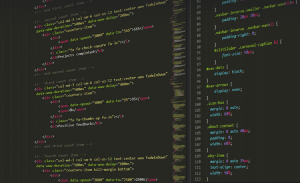What’s a FE Chemical Engineering Practice Exam?
The Fundamentals of Engineering (FE) exam for chemical engineering is your gateway to becoming a licensed professional engineer. It’s a rigorous test that evaluates your foundational knowledge and problem-solving skills across various core engineering areas, including thermodynamics, fluid mechanics, heat transfer, mass transfer, transport phenomena, and more. This comprehensive exam assesses your ability to apply the fundamental principles of chemical engineering to solve real-world problems.
The practice exam simulates the actual FE Chemical Engineering test with a focus on breadth and depth instead of just specific formulas. It’s designed to help you get familiar with the question types, pacing, and format of the actual exam. By practicing, you can build your confidence, identify areas needing improvement, and refine your approach.
While challenging, this exam is a stepping stone towards an exciting career in chemical engineering, and it’s achievable with hard work, dedication, and effective preparation. So, let’s dive deeper into how to conquer the FE Chemical Engineering Practice Exam and emerge victorious.
Understanding the Scope of the Practice Exam
The practice exam covers a broad spectrum of topics relevant to chemical engineering, including:
- Thermodynamics: Heat engines, refrigeration cycles, and understanding entropy.
- Fluid Mechanics: Compressible and incompressible flow, Bernoulli’s principle, fluid properties, and boundary layer theory.
- Heat Transfer: Conduction, convection, and radiation; thermal conductivity, heat transfer coefficients, and design considerations.
- Mass Transfer: Dispersion and concentration gradients, diffusion, osmosis, and separation processes.
- Transport Phenomena: Diffusion, convection, and conduction, coupled with their applications in chemical engineering processes.
Beyond the core subjects, the practice exam commonly includes questions on engineering design, material properties, and practical problem-solving. These scenarios provide a realistic glimpse of what you might encounter during the actual FE Chemical Engineering test.
Preparing for the FE Chemical Engineering Practice Exam
The key to success in any exam lies in thorough preparation and strategic planning. To help you effectively tackle the practice exam, here are some vital steps:
- Know Your Enemy: Familiarize yourself with the structure of the exam, including the number of questions, time constraints, and the types of problems.
- Review, Review, Review: Go through your course textbook, lecture notes, study materials, and past practice exams. Focus on understanding the underlying concepts rather than memorizing formulas.
- Practice Makes Perfect: Regularly take practice exams under simulated test conditions to familiarize yourself with the exam format and time pressure.
- Focus on Weak Areas: Identify your weak areas through practice tests and allocate more study time to those topics. Don’t neglect any subject, especially those that require extra attention.
- Seek Expert Guidance: Join study groups or seek guidance from experienced chemical engineers. They can provide valuable insights and personalized advice on challenging concepts and test-taking strategies.
By following these steps, you’ll be well-prepared for the FE Chemical Engineering Practice Exam and boost your confidence in tackling any challenges that come your way. Remember, a clear goal, dedicated effort, and consistent practice are crucial components of success in this journey.
Conquering the Test: Tips & Tricks
The FE Chemical Engineering Practice exam isn’t just about knowing the formulas; it’s about applying them effectively under pressure. Here are some tips that can boost your performance:
- Time Management is Key: Develop a realistic test-taking strategy to maximize time efficiency and minimize stress during the exam.
- Organize Your Thoughts: Take note of key equations, data points, and problem approaches before starting each question. This approach keeps you focused and prevents unnecessary diversions.
- Read Carefully & Thoroughly: Pay close attention to all the information provided in a problem statement, as even seemingly small details can impact your solution.
- Work Through Each Problem Methodically: Follow the steps of your chosen approach for each problem; don’t jump ahead or skip crucial steps.
- Review Your Answers Before Submitting: Double-check your answers to avoid any potential errors and ensure a complete understanding of your solution.
Remember, this exam is an opportunity to showcase your abilities and gain valuable professional recognition. By mastering these strategies and dedicating yourself to effective preparation, you’ll be well on your way to success in the FE Chemical Engineering Practice Exam.
Embracing a Growth Mindset
Finally, remember that even with rigorous preparation, there are no guarantees in any exam. The process of taking the practice exam and learning from it is as significant as the result itself. Embrace a growth mindset – see mistakes as opportunities to learn and improve. Analyze your performance, identify areas for improvement, and use this feedback to enhance your future study strategies.
Preparing for the FE Chemical Engineering Practice Exam doesn’t just involve mastering the theoretical concepts; it involves developing critical-thinking skills, problem-solving abilities, and a deep understanding of the practical applications of chemical engineering principles. These skills will serve you well beyond the exam and throughout your entire career trajectory as a chemical engineer.











